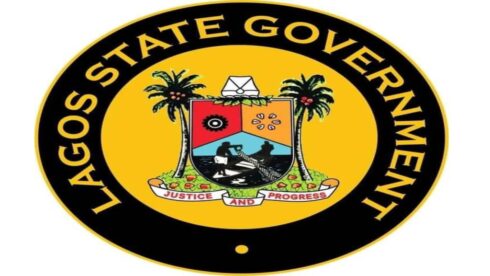The Central Bank of Nigeria (CBN) has implemented robust strategies to tackle surplus liquidity in the banking sector, particularly through the issuance of Nigerian Treasury Bills (NTBs) and Open Market Operations (OMO). In the first quarter of 2024, the Central Bank of Nigeria achieved remarkable success, generating a substantial N7.7 trillion. This marks a staggering 383% increase compared to the N1.59 billion acquired in Q1 2023.
The significant surge in funds generated underscores the effectiveness of the Central Bank of Nigeria’s liquidity management efforts. By strategically employing NTBs and OMO, the central bank aims to regulate liquidity levels in the financial system, ensuring stability and fostering economic growth. These measures play a crucial role in steering the country’s monetary policy and mitigating potential risks associated with excess liquidity.
Central Bank of Nigeria Carried Out Nigeria Treasury Bills Sales Performance Analysis
A detailed analysis of the first quarter of 2024 reveals a noteworthy increase in NTBs sales by the Central Bank of Nigeria. During this period, the Central Bank of Nigeria sold a total of N5.6 trillion worth of NTBs, representing a substantial rise from the N1.59 trillion sold in Q1 2023. This surge in NTBs sales reflects growing investor confidence in the Nigerian economy and the stability of government-backed securities.
The robust performance of NTBs sales underscores their appeal as a secure investment option, particularly amidst economic uncertainties. With escalating demand from both foreign and local investors, NTBs play a pivotal role in channeling funds into productive sectors while providing investors with attractive returns. The Central Bank of Nigeria’s proactive approach in managing NTBs auctions contributes to maintaining a balanced liquidity environment and bolstering investor trust in the financial markets.
Central Bank of Nigeria: Open Market Operations (OMO) Impact
In Q1 2024, the Central Bank of Nigeria conducted significant OMO sales, amounting to N2.06 trillion. This marks a stark contrast to Q1 2023, where no OMO sales were recorded. The introduction of OMO operations in 2024 demonstrates the Central Bank of Nigeria’s commitment to employing diverse monetary tools to regulate liquidity dynamics and address market imbalances.
The infusion of liquidity through OMO sales serves as a strategic mechanism for managing short-term interest rates and stabilizing the financial system. By conducting OMO auctions, the Central Bank of Nigeria can control the supply of money in circulation, thereby influencing borrowing costs and steering economic activity. The surge in OMO sales reflects the central bank’s proactive stance in adapting its monetary policy framework to evolving market conditions and achieving its objectives of price stability and sustainable economic growth.
Investor Sentiment and Subscription Trends
The first quarter of 2024 witnessed a remarkable uptick in investor sentiment towards Nigerian Treasury Bills (NTBs), as reflected in the total subscription figures. Foreign and local investors demonstrated strong confidence in NTBs, with total subscriptions amounting to N21.1 trillion, surpassing the offered amount of N2.21 trillion.
This surge in subscription highlights the attractiveness of NTBs as a preferred investment avenue, driven by their government backing and relatively low risk profile. The overwhelming demand for NTBs underscores investor confidence in the Nigerian economy and the efficacy of the central bank’s monetary policies. The substantial oversubscription signals a positive outlook for the financial markets and bodes well for sustaining liquidity management efforts in the future.
Evolution of Stop Rates on NTBs
The stop rates on Nigerian Treasury Bills (NTBs) experienced notable fluctuations during the first quarter of 2024, reflecting changing market dynamics and investor preferences. From the initial auction in January to the final auction in March 2024, stop rates witnessed a significant increase across various tenors.
Notably, rates surged from 2.44% to 16.24% for a 91-day tenor bill, from 4.22% to 17% for a 182-day tenor bill, and from 8.3995% to 21.124% for a 364-day tenor bill. These fluctuations in stop rates underscore the evolving risk perceptions and yield expectations among investors, influenced by factors such as inflationary pressures, economic outlook, and monetary policy signals.
Market Analyst Insights and Outlook
Market analysts emphasize the pivotal role of Nigerian Treasury Bills (NTBs) in shaping investor behavior and liquidity dynamics within the financial markets. Mr. David Adnori, the Vice President of Highcap Securities Limited, underscores NTBs’ appeal as a secure investment option backed by the government.
Adnori highlights two key factors driving investor interest in NTBs: the pursuit of higher yields amidst tightening monetary conditions and confidence in the government’s reform agenda. He also notes the preference for longer tenor bills, indicating investor confidence in the government’s policies and the overall economic trajectory. Additionally, the substantial oversubscription reflects the robust liquidity conditions prevailing in the financial system, signaling optimism among investors and stakeholders.
Table of Contents
Discover more from OGM News NG
Subscribe to get the latest posts sent to your email.













